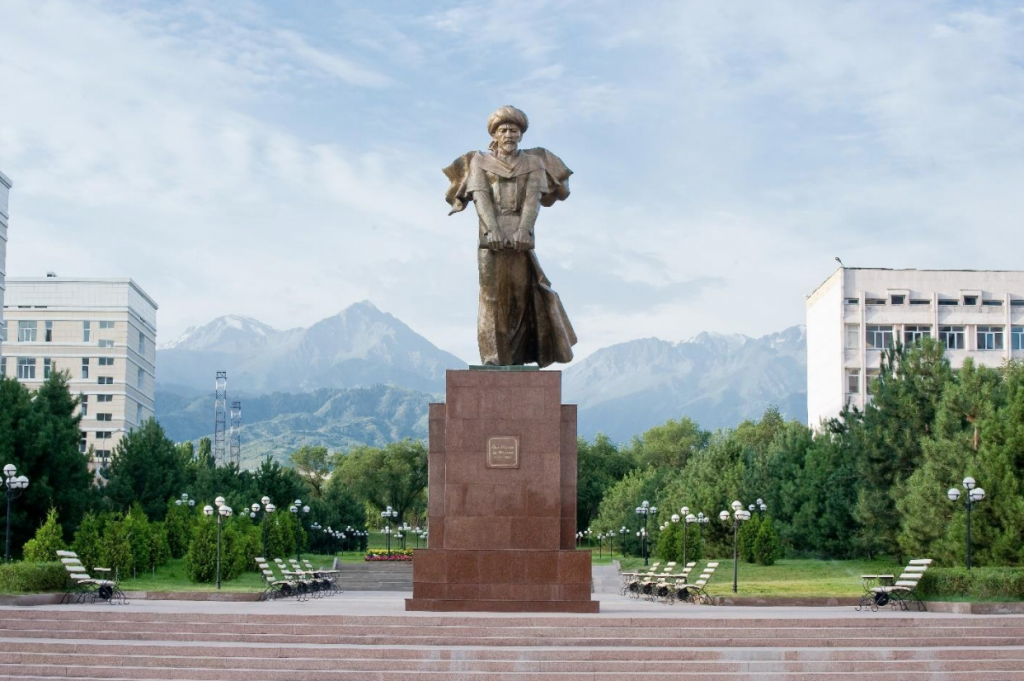The legacy of ‘The Second Teacher’ Lives on in Malaysia
4 min read
Born in Farab near the ancient city of Otrar on the territory of modern Kazakhstan in the 9th century, Abu Nasr Al-Farabi was and still is one of the most renowned intellectual philosophers and scientists in the history of the Islamic world. His legacy still lives on until today, eleven centuries after his death in Damascus in 950 AD.
Wherever the history of Islamic thought and civilisation is taught, and its curriculum develops, al-Farabi is very likely to get some space for mention and discussion, including on whether his tenth-century thoughts are still relevant to the contemporary period and beyond. Among the Islamic countries, it is in Iran and Turkey that Farabian studies enjoyed the best reception and in an almost uninterrupted manner from academics and scholars, According to Prof. Datuk Dr Osman Bakar, Emeritus Professor of Philosophy at the University of Malaya.
Iran and Turkey are not the only Islamic countries that still discuss and debate the rich legacy of ‘The Second Teacher’, a title Al-Farabi is known for in acknowledgement to his extraordinary contributions to the world of Islamic Philosophy and science. Malaysia became a rising star in Al-Farabi’s studies in the last decades.
Dr Osman Bakar said that in the last four decades, Malaysia might be added as another country in which al-Farabi’s influence has been on the rise in the academic community.
“If we further add Indonesia, then the Malay-speaking world, which boasts of a total population of more than 250 million people may be viewed as a major region in the Islamic world where al-Farabi is fast gaining influence,” He added.
Dr Osman elaborates “Islamic revival beginning in the early 1970s, and the accompanying Islamisation of knowledge programs were the main factors that helped promote interest in al-Farabi’s thought, particularly in Malaysia. A growing number of contemporary Malaysian academics found al-Farabi’s philosophical thought to be of relevance to the ongoing discourse in the country on the philosophy of science and the role of Islam in the state and nation-building.”
The 70s and 80s were an era when many leading academics in Malaysia helped introduce Al-Farabi to the Malaysian public. From 1973 – 1977, Dr Osman Bakar was a lectured at the National University of Malaysia, and he taught history of the science in Islamic civilisation, Al-Farabi’s contributions were among the topics he taught to his students.
In the 80s, Al-Farabi had greater exposure to the Malaysian public, and the first book on him appeared in Malaysia in 1986 when Prof. Dato’ Dr Idris Zakaria wrote his book on Al-Farabi’s theory of the state, titled “Teori Kenegaraan al-Farabi”.
The following year 1987, Dr Osman wrote his book on Al-Farabi’s life. The book was written in English and gained significance because the Islamic Academy of Science published it. Many of the leading academics and scientists in Malaysia read the book. It was undoubtedly a breakthrough for Al-Farabi’s legacy in Malaysia. In 1991 the book was translated to Malay. With two prints, thousands of copies in both English and Malay were sold to the Malaysian public.
“Al-Farabi became better known in Malaysia when my doctoral thesis was published in 1992 under the title Classification of Knowledge in Islam. The first six chapters of the book (out of eleven chapters) are on al-Farabi’s life, thought, and significance, and his philosophical system, particularly his classification of the sciences. Later, the book was translated into Indonesian Malay, and it was well-received.” Dr Osman added.
Dr Osman thinks that it was these publications that helped promote Al-Farabi and his ideas in Malaysia. “I felt delighted when I met a few people – my former students and readers of my book – who told me they have sons whom they have named Al-Farabi, and they thanked me for that!”, He said.
These extraordinary efforts still stand firm today, especially with the ever-growing relations between Kazakhstan and Malaysia in terms of cultural and educational exchange, with many projects led by the embassy of Kazakhstan in Malaysia.
Ambassador of Kazakhstan Bolat Imanbayev during the conference
On 24 November, the Embassy of the Republic of Kazakhstan in Malaysia together with Al-Farabi Kazakh National University and the International Islamic University Malaysia organised an international scientific video conference «Al-Farabi, the Universal Thinker, Discussion of Osman Bakar’s Al-Farabi: Life, Thought and Significance». That is in commemorate of the Kazakh great philosopher’s 1150th anniversary.
In the welcoming speeches, Ambassador of Kazakhstan Bolat Imanbayev, First Vice-Rector of Al-Farabi Kazakh National University Mukhambetkali Burkitbayev and Deputy Rector of the International Islamic University Malaysia Ahmad Fariz Ismail, noted the uniqueness of this event and its importance in strengthening bilateral cooperation, scientific and cultural exchange between Kazakhstan and Malaysia.
The event was attended by 233 participants, including academics, scientists, and researchers, and the book of Dr Osman was discussed, especially the role it played in preserving Al-Farabi’s heritage in both Malaysia and the world.
But Al-Farabi is not just a historical legacy and old philosophy to be learned and discussed in the context of mere philosophical study. For Dr Osman, there is a lot to be learned and practised from Al-Farabi’s teachings and books in our modern lives and intellectual debates.
“Al-Farabi emphasised the importance of correct, healthy and creative thinking in our lives. Since Islam emphasises the pursuit of a knowledge-based society and a knowledge-based civilisation, the possession of a healthy thinking culture becomes crucial.
“He has shown the way to the realisation of this thinking culture through the art of logic and wrote about forty works just on the subject of logic and logical thinking. We should make a serious attempt to revive his wisdom on the methods and virtues of correct and creative thinking.” He said.
All parties participating in the event agreed to establish educational and humanitarian cooperation between the universities of Kazakhstan and Malaysia, to join efforts in the studies about one of the greatest philosophers in the history of the Islamic civilisation.





